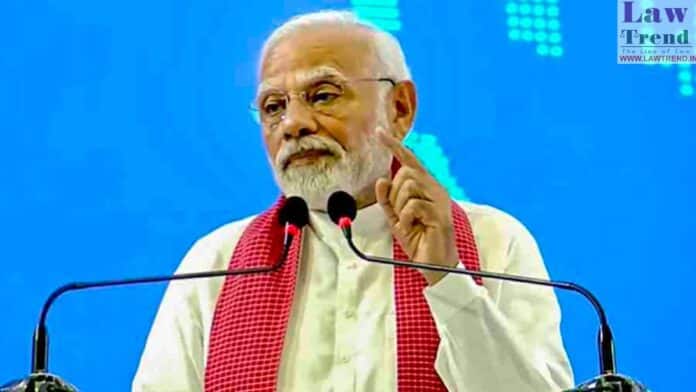The Karnataka High Court has put a temporary halt to the criminal proceedings against Shivaprasad, a resident of Dakshina Kannada district, who faced legal challenges after his wedding invitation encouraged guests to vote for Prime Minister Narendra Modi. Justice M Nagaprasanna granted the interim stay on November 11, while also issuing notices to the Karnataka government and a polling officer to respond to Shivaprasad’s plea for quashing the FIR.
The FIR against Shivaprasad was filed under Section 188 of the Indian Penal Code (IPC) for “disobedience to an order duly promulgated by a public servant,” and under Section 127A of the Representation of the People (RP) Act, following a complaint by election officer Sandesh KN. The officer contended that Shivaprasad’s message on the wedding card violated the electoral code of conduct for the 2024 general elections.
The contentious part of the invitation read: “Voting for Modi is the gift for my wedding,” which was deemed to breach election rules. However, Shivaprasad’s defense, presented by advocate Vinod Kumar, argued that the invitations were printed on March 1, 2024, prior to the Model Code of Conduct’s enforcement, which began only after the Election Commission announced the election schedule on March 16, 2024.
Moreover, Shivaprasad highlighted the delayed timing of the complaint, which was lodged on April 19, 2024, suggesting that the Model Code of Conduct was not applicable when the invitations were printed. His counsel further argued that the FIR was procedurally flawed as it was registered without proper examination of the facts and that the magistrate’s court had not followed the requisite legal protocols.
In the court’s interim order, Justice Nagaprasanna recognized the peculiar nature of the allegations, noting the unusual circumstance where a wedding invitation’s postscript could lead to an electoral offense charge. The judge remarked, “This is said to be an offence under Section 127A of the Representation of the People Act, 1951.” The court observed that the evidence presented showed that the invitations were printed well before the announcement of the elections, which underlines that there could be no violation under Section 127A of the RP Act as alleged.




